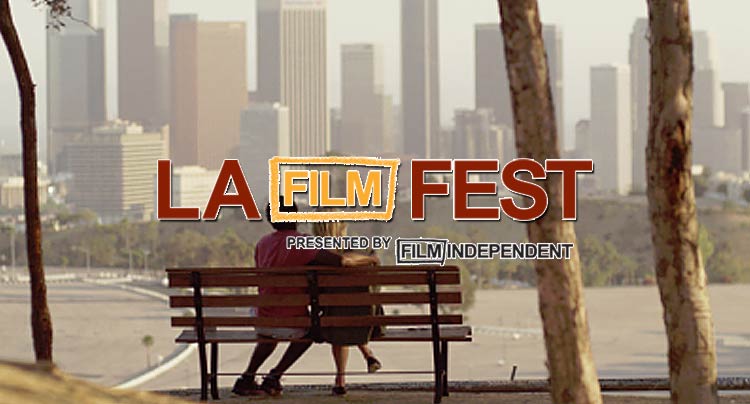LAFF 2014: Echo Park

It used to be that indie cinema was the place to go to get fresh perspective on common film themes. Somewhere along the way indie films have formed their own grooves and well-worn paths, and every so often someone gets stuck in them. One such trend are clichéd englightenment films, where a character has a crisis of faith/life/romance/whatever and runs away to someplace new, because as we all know, the answers are “out there”. Echo Park is just such a film. Named for Echo Park, a hipster hot spot in LA, this uninspired neighborhood serves as the background to an unoriginal tale of transformation.
Mamie Gummer (whose previous works show she is obviously better than all this) plays Sophie, a women whose long-term boyfriend and upper class West LA life just doesn’t seem fulfilling any more. So she moves to Echo Park, land of coffee shops, record stores, and people with suspicious amounts of free time. She buys a couch from Alex (Anthony Okungbowa) who starts to imbue his wisdom from the get-go on how great life can be when you get to know your neighbors. He awkwardly asks Sophie to come play soccer with his best friend (and neighbor, of course) Mateo (Maurice Compte) and his son Elias (Ricky Rico). She awkwardly declines, then does it anyway. And thus begins Sophie’s predictable rebound affair with Alex, who also predictably wishes it was more than it is despite his impending move to England. Sophie hangs out with her new friend group, encourages Elias’s new photography interest, and ignores calls from her ex. Helen Slater shows up as Sophie’s hysterical stuck-up mother, offering absolutely no motherly advice whatsoever, or any emotion for that matter. When Simon (Gale Harold), the ex, comes knocking on Sophie’s door, she gives in to his overbearing requests, but ultimately has to decide whether to return to her old life or take a chance on this new one in Echo Park.
Maybe someday a person dealing with a stagnant relationship and a crisis of lifestyle choice will try something more inspired than making friends with ethnically diverse children or engaging in doomed-to-failure rebound relationships. It feels as though first time director Amanda Marsalis read Catalina Aguilar Mastretta’s script set in a LA cultural hub, it reminded her of a breakup, and she declared it inspired. As though rebound relationships and randomly buying houses in unknown neighborhoods are usually remedies for life’s problems . (And for the record, with real estate prices where they are in Echo Park, Sophie buying a house there is about the best way to highlight her obvious socioeconomic differences from her neighbors.)
Really this film does no justice to the diverse neighborhood of Echo Park, nor to the nuanced emotions and reasons for breakups and makeups. Alex says at one point “why do people always go back?” But he never questions the changing nature of people in general. That people can change for the better. His words are naïve and indeed the entire film exudes this same shortsightedness. Echo Park is a presumptive piece of work, relying on its audience to be on the same page: Echo Park is magic, breakups suck, running away is the best path to enlightenment, and the people one meets in the midst of life change are only there to serve one’s forward movement. A shallow film, with shallow characters, this film does Echo Park tourism no favors.
